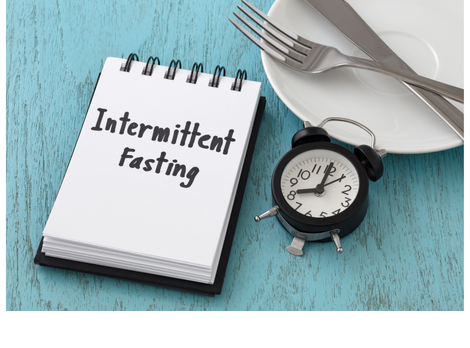Posted on March 6, 2025

Intermittent Fasting is an eating pattern that cycles between periods of fasting and eating. It’s currently trendy in the health and fitness community. IF doesn’t specify which foods you should eat but when you should eat them. This means it’s not a diet — it’s more accurately described as an eating pattern. Common IF methods involve fasting for 16 hours and having an 8-hour eating window. Some people do 24-hour fasts twice per week. Fasting has been a practice throughout human evolution. As a result, humans evolved to be able to function without food for extended periods.

You can practice intermittent fasting in several ways, all involving splitting the day or week into eating and fasting periods.
During the fasting phase, no food is consumed. However, you can drink calorie-free beverages such as water, herbal tea, and black coffee.
These are the most popular methods:

Also called the Lean gains protocol, this involves an 8-hour eating period and a 16-hour fasting period. Some people do this by skipping breakfast, but you can also do the reverse and skip dinner or eat early.

This involves fasting for 24 hours once or twice per week. Because this is a slightly more advanced version of fasting, you should only try this if you’re pretty comfortable with the practice.

With IF, you consume only 500–600 calories on two non-consecutive days of the week but eat as usual the other 5 days.
For many people, reducing their eating period also reduces the number of calories they eat daily. Over time, this can contribute to weight loss.

Studies have found that IF provides many benefits for weight management and overall health. However, keep in mind that much of the existing research includes, small, short-term studies. This means researchers need more information to understand how IF can help with sustainable, healthy weight reduction. Fasting is certainly not for everyone. If you’re underweight or have a history of eating disorders, you should not fast without speaking with your doctor first.

Some evidence shows that IF may not be as beneficial for females.
There are several anecdotal reports of females whose menstrual periods stopped when they started doing IF and went back to usual when they resumed their previous eating pattern. This is likely because fasting can disrupt female hormones, affecting menstruation and overall health.
However, IF may be a useful tool for some people. It can help treat hyperandrogenism in people with polycystic ovarian syndrome (PCOS), which could potentially affect their ovulation and fertility. Experts suggest that females take care of IF. Overall, the research is very limited, and there is a lack of long-term data. More research is needed before we can understand the implications.
Females should follow up with care, like easing into the practice and stopping immediately if they have any concerns, like missing periods. If you are considering IF, it’s best to talk with a doctor or dietitian to determine whether it is right for you.

Hunger is the main side effect of IF. You may also feel weak, and your brain may not perform as well as it usually does. This might only be temporary, as it can take some time for your body to adapt to the new meal schedule. If you have a medical condition, you should speak with your doctor before trying IF.